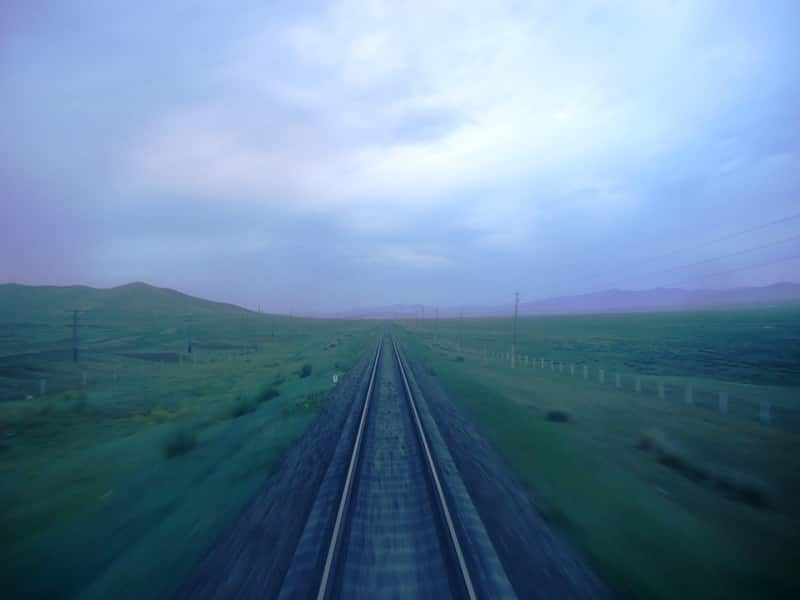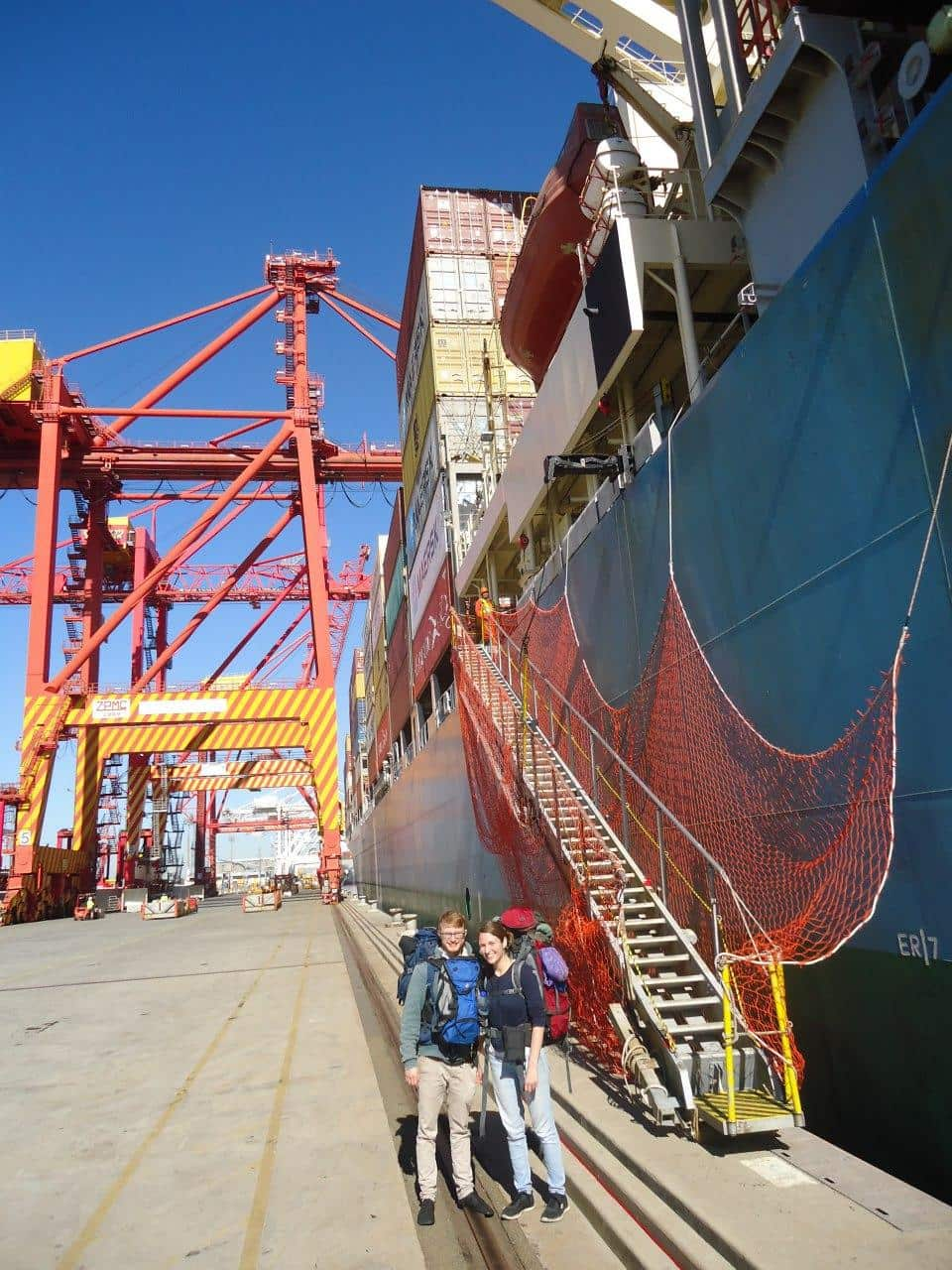There was no doubt Lorenz and Giulia would attend the Sydney wedding to which they were invited, as Giulia was asked to be maid of honour.
However, boarding a plane to Australia was out of the question. Lorenz and Giulia, who both study environmental science in Switzerland, had signed up to the ‘No Fly Climate Sci’ movement.
This group of around 360 earth scientists, academics and members of the public either don’t fly or aim to fly less, lowering their environmental impact.
So how else could they travel such a long journey without flying?
After intense research and planning, Lorenz and Giulia decided on an itinerary that was compatible with their concern about the planet’s health.
They hopped a train in Berlin and travelled through Russia, Mongolia and down to Qindao in the south of China, where a freight ship took them to Brisbane, then on to Sydney. The journey took all up six weeks. “It was worthwhile,” Lorenz says. “We travelled at a slow pace and that way we were able to experience a lot. We also saved between 2.5 and 4.5 tonnes of carbon dioxide per person.”
“It was worthwhile,” Lorenz says. “We travelled at a slow pace and that way we were able to experience a lot. We also saved between 2.5 and 4.5 tonnes of carbon dioxide per person.”

On the train from Irkutsk to UlaanBataar, Mongolia. Source: Lorenz Keysser & Giulia Fontana
Lorenz is careful with his estimate. A straightforward calculation of exactly how much carbon dioxide they saved is not possible, he thinks, as fluctuating numbers of flight passengers results in uncertainty over the true per-person carbon cost of flying.
“Nevertheless every ton of carbon dioxide we can avoid is crucial for our planet,” he says. “Climate change equates to cultural change. We desperately have to change the way we behave. People with time up their sleeves and money in their pocket should embrace new thinking and simply not board planes anymore.“
Lorenz and Giulia are lucky enough to have had both money and time. Since traveling from Germany to Australia and back took a few weeks they had decided to stay in Australia for a whole year, continue their studies in Sydney and find some work.
They hope their experience will convince others to steer away from frequent and long-distance flying, instead travelling at a slower pace within their region.
“The experience of the journey will be far greater in the end,” Lorenz says. What advice does he have for people in Australia, like migrants who frequently fly overseas to see their families?
What advice does he have for people in Australia, like migrants who frequently fly overseas to see their families?

Lorenz Keysser and Giulia Fontana in front of their freight ship to Brisbane. Source: Lorenz Keysser & Giulia Fontana
“You need to ask yourself: is that certain trip really necessary?,” he says. “If your answer is yes, ask yourself if there are other ways to get in contact with family members or friends. Of course, you will face hurdles and obstacles but you need to accept them in the context of changing your lifestyle to slow down or stop global warming.”
“Asking yourself what I as an individual can contribute to reducing global warming is already a great start,” Lorenz says, “but actions by individuals are not enough. We don’t have much time left. We need a drastic change. We are very close to the limit of the number of emissions we can afford to put out there. So we need systematic changes on a big scale like implementing a tax on frequent flying. The more you fly the more you pay.
“In my opinion, we need a grassroots movement that demands these changes. We need a movement that as an example wants a stop on airport expansions or a halt in economic growth. It does not necessarily mean that we have to fall back into the Stone Age.
“We also need to consider who in the future shall have the privilege to fly. Should that privilege belong to the wealthy people who can afford to pay the most? Is it for the individual who needs to see his family in an emergency? Or does it belong to the physically impaired who has no choice of alternative ways of travel?”
There are a growing number of people worldwide concerned about their ecological footprint.
Lorenz points out the movement ‘Flight Free 2020’ as an example, where individuals are committing not to fly for the whole year of 2020. So far the movement is finding followers in Sweden, the United Kingdom, Denmark, Belgium, France, Germany, and Canada.
